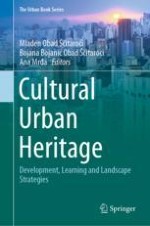
2019 | OriginalPaper | Buchkapitel
1. Heritage Literacy: A Model to Engage Citizens in Heritage Management
verfasst von : Darko Babić, Meltem Vatan Kaptan, Clara Masriera Esquerra
Erschienen in: Cultural Urban Heritage
Aktivieren Sie unsere intelligente Suche, um passende Fachinhalte oder Patente zu finden.
Wählen Sie Textabschnitte aus um mit Künstlicher Intelligenz passenden Patente zu finden. powered by
Markieren Sie Textabschnitte, um KI-gestützt weitere passende Inhalte zu finden. powered by